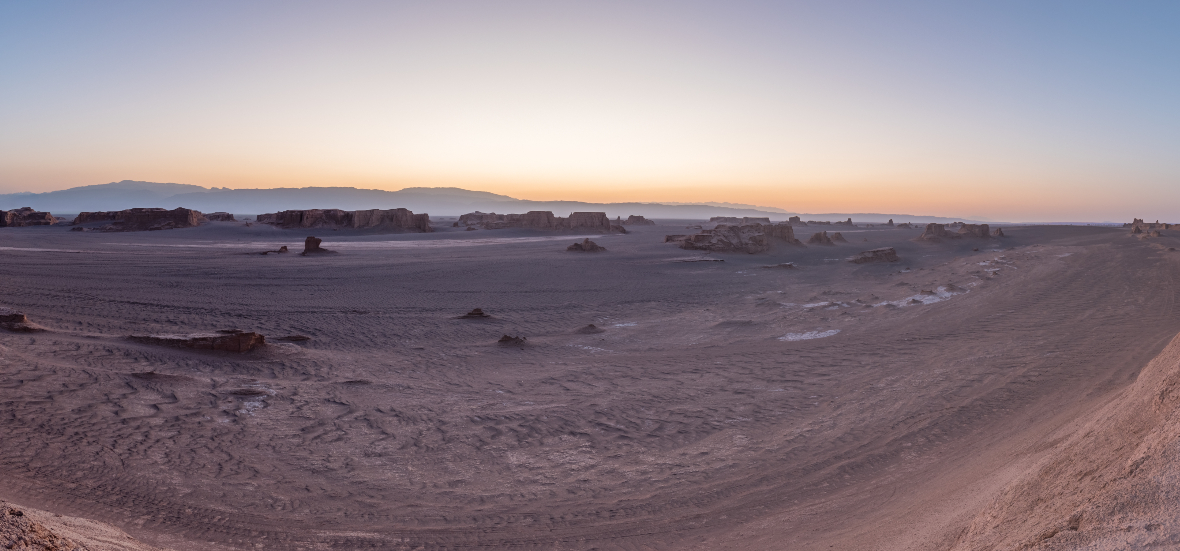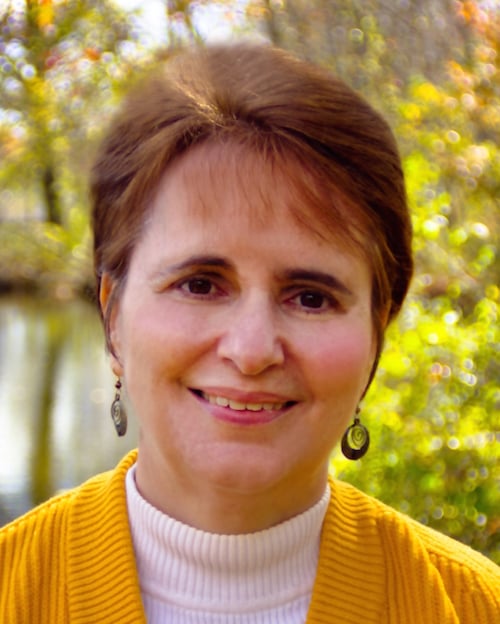
Traveling through the wilderness of uncertainty, Susan Bailey experimented with calming methods of prayer.
For the last several months our world has been shifting, shaking, and changing, rather like the plates within the earth which cause the ground to quake. We lose our balance, we may even fall over flat on our faces and find it difficult to get up again. Such a dramatic and swift overturning of all that is familiar to us wreaks havoc in many ways.
Many of us are fearful of catching the coronavirus and are afraid to venture from our homes, even to go to church. Others like myself are experiencing acute anxiety because we find the adjustment to the “new normal” so difficult. Many like me have lost their jobs and don't know where to turn. It may seem like an impenetrable concrete wall is blocking our view and the best we can do is just take one step at a time.
I used to find that lack of vision into my future to be disconcerting. That feeling of being in limbo fueled my anxiety. But through much prayer, I am finding it to be a blessing. I actually feel at peace not knowing what is coming next. I have no choice but to trust in God.
I read a reflection recently in the Living with Christ missalette which perfectly articulated what I was feeling. Reflecting on the readings from the Old Testament which lately have been focusing on God's judgment on Israel, author Patricia Livingston wrote, “God is leading Israel into the desert … a place where a person [meets] God. It was a wilderness of solitude away from the familiar.” She emphasizes the tenderness of God towards Israel as that of a husband for a dearly beloved wife.
There is no doubt that many of us have been led into a wilderness of sorts, far away all that we have known. And although “we are all in this together,” each of us has to travel our own road by ourselves. Alone, we go out and meet our Lord.
For me, it necessitated changing the way that I pray. The physical symptoms that I continue to experience as a result of my anxiety (my body is constantly shaking) made it a priority to still myself. So I lie on my back with my head slightly elevated and my arms crossed to quiet down the tremor. And I listen. It may be the Mass on EWTN or the Chaplet of Divine Mercy, so beautifully sung by Bishop Robert Reed of Catholic TV. I do not speak the words of the prayers but think them in my head. That way every part of my body is still. And the shaking subsides.
I shared this way of praying with my homebound friend (we listened to the Rosary) and she commented afterwards how wonderful it was to just sit and be still. It was then that I knew for certain that this is how God wanted me to pray. It is deepening my relationship with him in ways that I can't fathom at the moment but I am sure they will manifest themselves in time.
Uncertainty is frightening and painful. Suffering is not desirable and it takes a great deal out of us. But if we can allow God to lead us, we will emerge victorious, even if that outcome is death. The late Father Frank McFarland, in a rosary reflection on Catholic TV, said that Jesus invites us to take our sorrows and troubles and enter into his passion so that we can experience his resurrection. No one suffered more than Jesus, both in mind and body. But that broken body and crushed spirit rose again three days later in a glorified state. That is his promise to us.
Our world is crazy and our path darkened. But by accepting the invitation and taking the hand of Jesus, we will rise again.
You can listen to Father McFarland's Rosary reflection at CatholicTV.org.
Copyright 2020 Susan Bailey
Image: Diego Delso, CC BY-SA 4.0, Wikimedia Commons (2016)
About the Author

Susan Bailey
Susan Bailey is the author of River of Grace: Creative Passages Through Difficult Times (Ave Maria Press), and Louisa May Alcott: Illuminated by The Message (ACTA Publications), part of their Literary Portals to Prayer series. Along with her blogs Be as One and Louisa May Alcott is My Passion, Susan writes for the Diocese of Worcester newspaper, The Catholic Free Press.


.png?width=1806&height=731&name=CatholicMom_hcfm_logo1_pos_871c_2728c%20(002).png)
Comments